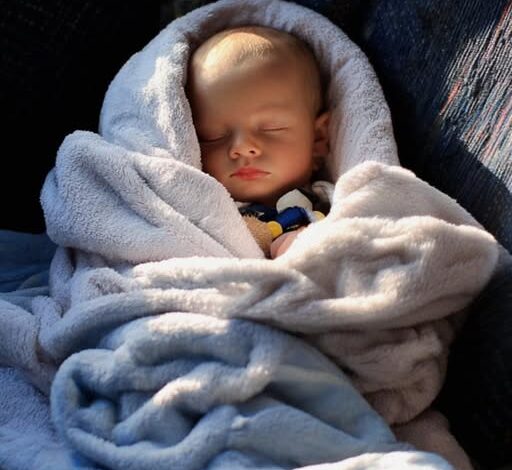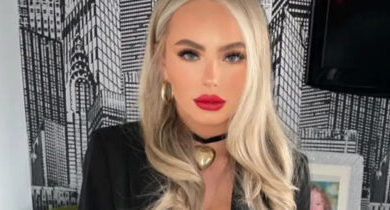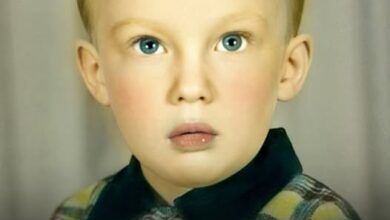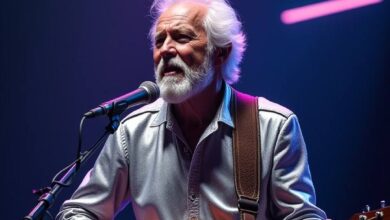
I Found a Crying Child on the Back Seat of a Bus – The Next Day a Rolls-Royce Pulled up in Front of My House
I’m Sarah, thirty-four, a single mother of two, and a city bus driver. It’s not glamorous, but it pays the bills and keeps the lights on. My daughter Lily is three; my son Noah isn’t even one. Their father disappeared before Noah was born, so it’s just me and my mother, who helps however she can. Between the two of us, we trade sleep for survival — coffee for sanity.
Most nights I clock out close to midnight. That’s when the city finally exhales. Streetlights hum, and the roads turn into long ribbons of empty blacktop. I always do one last walk-through before locking up my bus — checking for lost items, a forgotten purse, or an empty soda can rolling under a seat. It’s a routine that keeps me grounded. That night, the air bit like knives. My breath turned white, and the bus windows were fogged over. I was thinking of home, of Noah’s small hand against my cheek, when I heard it — a faint sound, thin and trembling, from the back.
At first, I thought it was a trick of the wind. Then I heard it again — not quite a cry, more like a whimper. My heart kicked hard against my ribs as I walked down the aisle. There, in the last row, under a pink blanket glazed with frost, was a baby.
She was impossibly small, her lips tinged blue. Her tiny fists were limp. She wasn’t crying anymore — just breathing in shallow, fragile sips. Panic hit me like a wave. I tore off my coat, scooped her up, and pressed her against my chest, whispering whatever words came. “Hey, sweetheart. I’ve got you. You’re safe now.”
There was no diaper bag, no note, nothing. Then I saw it — a small, folded piece of paper tucked in the blanket. It read: Please forgive me. I can’t take care of her. Her name is Emma.
I didn’t think. I just ran. I bolted off the bus, into the freezing air, fumbling with my keys until my fingers stopped working. I somehow got to my car, turned the heat on full blast, and drove home with one arm around the child, her cold weight pressed to my heart.
My mother met me at the door, her eyes wide and frightened. We didn’t speak. We moved on instinct — wrapped the baby in everything soft we owned: quilts, towels, my winter jacket. We sat by the heater, whispering prayers we hadn’t said since my childhood. I held her, rocked her, prayed her warmth back into the world. Her skin was ice. Her eyes stayed shut.
A desperate idea came. I was still breastfeeding Noah, barely — he was weaning. Maybe it could help. “Try,” my mother said softly. So I did. For a moment, nothing happened. Then, suddenly, she stirred, latched, and began to drink. The relief broke me. Tears ran down my face as I whispered, “She’s drinking. She’s alive.”
We stayed awake until dawn, the three of us huddled together. By morning, her cheeks had turned pink, her hands curling into little fists. When I finally called 911, the dispatcher’s voice trembled when I explained what had happened.
The paramedics came within minutes. One of them checked her pulse and smiled. “She’s stable,” he said. “You may have saved her life.” I sent them off with a few bottles of milk, a spare blanket, and Noah’s tiny hat. “Tell them she likes to be held close,” I said. “We will,” the medic promised.
After they left, silence filled the house — thick and heavy. The scent of baby lotion hung in the air. Her pink blanket lay folded on the couch like something sacred. I tried to drink coffee, but my hands wouldn’t stop shaking. Every time I closed my eyes, I saw her blue lips turning warm against my skin.
Three days passed. I was making roast chicken when I heard the sound — not a knock, but the quiet growl of an engine outside. When I peeked through the curtain, I saw a black Rolls-Royce parked at the curb. It didn’t belong in my neighborhood.
A tall man stepped out, silver hair, immaculate wool coat, leather gloves. His posture was straight, deliberate — the kind of man who never had to ask twice for anything. “Are you Sarah?” he asked.
“I am,” I said carefully.
“I believe you found a baby a few nights ago.”
“Emma,” I whispered. “Is she okay?”
“She’s alive,” he said, his voice softening. “Because of you.” He looked down at his gloved hands, then back up. “She’s my granddaughter. My name is Henry.”
We sat on the porch, where the wood creaked beneath our feet. Henry told me about his daughter, Olivia — how she had battled depression and addiction for years. They had lost contact, filed missing person reports, searched every shelter and hospital. No one knew she was pregnant. “She turned herself in yesterday,” he said quietly. “She saw the news. She told the police she didn’t want to hurt the baby. She just didn’t know what else to do.”
I tried to piece it together — the night bus, the note, the tiny face in the cold. “She left her on a bus,” I said.
“She said you smiled at her when she got on,” he said. “That you looked kind. She said she felt safe leaving Emma with you.”
I tried to remember her — the blur of faces in the dim light, people coming and going. Maybe I had smiled. Maybe that one moment made her believe there was still some good left in the world. “I smile at everyone,” I said.
“Maybe that’s why she trusted you,” he replied.
“Is she okay now?” I asked.
“She’s in treatment. She’s getting help. She asked us not to bring Emma yet, but she’s fighting. Knowing Emma survived — it gave her a reason to start again.”
He reached into his coat and handed me an envelope. “I know you didn’t do this for money,” he said. “But please, accept this as gratitude.”
When he left, I stood on the porch, the cold biting at my ankles, the envelope trembling in my hand. Inside was a handwritten note: You didn’t just save Emma’s life. You saved my family’s last piece of hope. Beneath it, a check — enough to pay off my debts, cover rent for a year, and finally exhale without fear.
Months passed. Life fell back into its rhythm, but not quite. The phone rang one morning. It was Henry. “Emma’s thriving,” he said. “Healthy, smiling, full of life.”
“I think about her every day,” I told him.
“She’s strong,” he said. “Just like the woman who found her.”
“Tell her she was loved that night,” I said, swallowing hard. “Even if she never remembers it.”
“I will,” he promised. “She’ll grow up knowing who you are. And what you did.”
I still walk the length of my bus every night. I still check every seat before I clock out. When I reach the last row, sometimes I stop and listen. The hum of the engine, the creak of the floor, and — maybe only in my head — the faint sound of a baby’s breath. Not every miracle comes wrapped in sunlight. Some arrive in the dark, shivering and small, inside a thin pink blanket. And sometimes, saving one life ends up saving your own.




